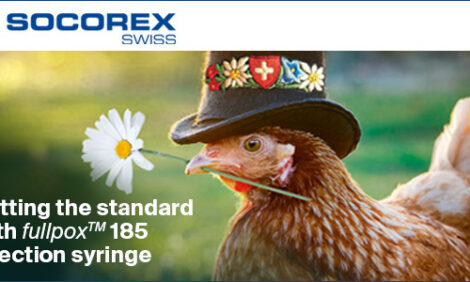



Upgrading Hen Housing: Latest Developments in Europe
At the recent International Egg Commission (IEC) meeting in Vancouver, a panel of experts discussed the future of enriched colony systems and other alternatives to conventional cages for laying hens in the EU.It is well known that the ban on conventional cages within the European Union is imminent; but just how prepared are the countries within the EU? How will their new production systems affect the hens and the eggs they lay? And what are the commercial costs and implications of these new systems?
At the recent IEC Conference in Canada, egg industry experts – Mark Williams, Thea Fiks-van Niekerk, Peter van Horne, Gert Stuke and Andrew Joret, provided delegates with a unique opportunity to learn about the lates – EU developments, as they each shared their industry insights and research with members of the IEC.

Current Situation with Cages in Europe?
By 1 January 2012, if you produce eggs anywhere in the European Union, the only egg production systems you will be permitted to use will be either enriched cages, free-range, barn or organic methods. In just two years' time, conventional cages will be banned throughout Europe, yet according to the latest figures presented by Mr Williams, in Europe in 2008, 278 million hens were in cage systems, and only 20 million – just seven per cent of these – are in enriched colonies. Mr Williams believes that the industry faces a huge challenge to move all those hens across before the deadline.
Progress in EU Member States
Germany
Germany is operating ahead of the EU: all laying hens in Germany must be out of conventional cages by the end of 2009. Mr Stuke explained to IEC members at the conference that six research farms were set up in Germany to study the animal, ethical and human aspects of using enriched colony systems. The research farms studied all aspects of animal health and hygiene, as well as the ethical implications such as animal protection, and human food safety and risk assessment issues.Results showed that the German 'Kleingruppenhaltung' colony system is highly effective for achieving the highest levels of animal health, animal welfare and food safety. Laying performance is comparable with conventional cages; mortality is lower than in alternative laying systems; there is no need for beak shortening; the system allows good observation of the hens; the stability of the hens' legs and bones is comparable to other laying systems and the colony system enables the highest levels of hygiene to be met.
The Netherlands
The Netherlands has decided to adopt Germany's colony system. As a major supplier to the German market, Dutch egg producers are responding to German market trends and demands.
Austria
In Austria, conventional cages were prohibited at the end of 2008, and enriched colonies will also be banned by 2020.
Sweden
In 1989, Sweden made the decision to ban conventional cages. Egg farmers were originally given a time frame of 10 years to phase out the conventional cages, but this was later extended, and conventional cages ceased to be used in Sweden by the end of 2002. Enriched colony systems are permitted in Sweden.
Belgium
Belgium will comply with the EU Directive to ban conventional cages by the beginning of 2012. There is also a proposal to ban enriched colonies in Belgium by the end of 2024. However, according to Mark Williams, this complete cage ban is unlikely to come into force until 2040.
As the EU ban on conventional cages draws closer, most European countries are moving towards enriched colony systems, at least in the short- to mid-term. Numerous research projects have been carried out throughout Europe, studying the commercial implications of adopting these systems.
Study on Welfare Aspects of Hen Housing Type
* "Overall, the production results using the enriched colony systems were very similar indeed to the results achieved using conventional cages" |
Dr Thea Fiks-van Niekerk is currently leading a research project studying the housing and welfare of laying hens. A recent study, the LayWel Project, compared the behaviour of birds in conventional cages, with that of birds in enriched colonies. The aim of the study was to determine whether the birds use the additional features found in enriched colonies, i.e. the perch, nest box and litter area. The study also compared the production processes of these two cage systems, including egg quality, feed intake and the health and hygiene of the birds.
Dr van Niekerk's research results showed that the hens do use the facilities provided in enriched colonies, and between 95 and 99 per cent of eggs were laid in the nest boxes. Around 40 to 50 per cent of the hens used the perches during the day time and at night time, the great majority of them (80 to 90 per cent) used the perch.
Having studied the production results from both conventional cages and enriched colonies, Dr van Niekerk recommends that enriched systems incorporate an egg saver and time clock, which will periodically move the egg belt, helping to reduce grouping and prevent the eggs on the belt from knocking into each other and cracking.
The quality of eggs laid in enriched colonies was comparable to those laid in conventional cages: 93.29 per cent of eggs laid in conventional cages were top grade compared to 92.27 per cent in enriched colonies.
When the feed intake of birds in conventional cages was compared with those in enriched colonies, surprisingly, the results showed that the hens in the colonies actually consumed slightly less. It was expected that due to having more movement and using more energy, feed intake would be higher for the enriched hens. One theory offered by Dr van Niekerk is that the birds in the enriched colony can sit quietly on the perch, therefore moving less than birds in a conventional system.
Overall, the production results using the enriched colony systems were very similar indeed to the results achieved using conventional cages.
When assessing the risk of disease, there was no significant difference found between conventional cages and enriched colonies.
The studies carried out comparing the two cage systems conclude that hens use the facilities made available to them in the enriched colonies, while egg production, bird health and egg hygiene are very similar for hens in conventional cages and enriched colony systems.
Economic Impacts on Egg Production
* "Enriched colonies incur additional costs, without generating additional revenue" |
Having established that most European countries will adopt enriched colonies, Peter van Horne addressed the economic impact of the system.
Enriched colonies require slightly higher labour input, while the density of hens will decrease. This results in an additional cost per hen. In addition, there is the capital investment required to install the systems.
These economic factors result in an eight to 10 per cent increase in production costs for enriched colonies. Despite the extra investment required, eggs produced in enriched colony systems do not attract premium prices. Mr van Horne said: "At this moment, there is no mark-up bonus in the market in Europe."
Free-range eggs and organic eggs have the benefit of generating higher market prices but consumers regard eggs laid in enriched colonies as still being caged eggs, so are not prepared to pay a premium. Therefore, the enriched colonies incur additional costs, without generating additional revenue.
Experts attending the conference expressed confidence that enriched colonies will comply with animal welfare guidelines, including those in California, while maintaining an efficient production system. Andrew Joret stressed that the body of scientific evidence shows that enriched colonies provide good production results and, although it is still difficult to actively promote them to consumers, they are a lot easier to defend than conventional cages.
However, in the eyes of the consumer, as Mr Joret explained, "a cage is still a cage". In the UK, two of the country's leading four supermarkets have declared that they will sell eggs farmed from enriched cages, one will not and the remaining one is currently undecided, said Mr Joret.
Further Reading
| - | You can read the previous report from this recent IEC conference by clicking here. |
October 2009








